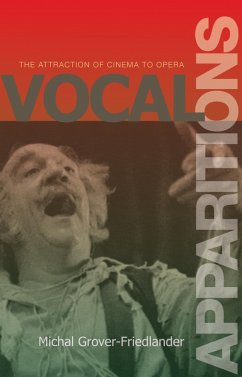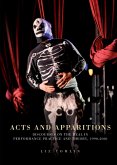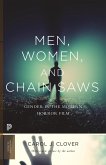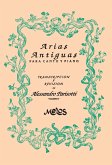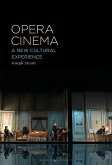Cinema and opera have become intertwined in a variety of powerful and unusual ways. Vocal Apparitions tells the story of this fascinating intersection, interprets how it occurred, and explores what happens when opera is projected onto the medium of film. Michal Grover-Friedlander finds striking affinities between film and opera--from Lon Chaney's classic silent film, The Phantom of the Opera, to the Marx Brothers' A Night at the Opera to Fellini's E la nave va.
One of the guiding questions of this book is what occurs when what is aesthetically essential about one medium is transposed into the aesthetic field of the other. For example, Grover-Friedlander's comparison of an opera by Poulenc and a Rossellini film, both based on Cocteau's play The Human Voice, shows the relation of the vocal and the visual to be surprisingly affected by the choice of the medium. Her analysis of the Marx Brothers' A Night at the Opera demonstrates how, as a response to opera's infatuation with death, cinema comically acts out a correction of opera's fate. Grover-Friedlander argues that filmed operas such as Zeffirelli's Otello and Friedrich's Falstaff show the impossibility of a direct transformation of the operatic into the cinematic.
Paradoxically, cinema at times can be more operatic than opera itself, thus capturing something essential that escapes opera's self-understanding. A remarkable look at how cinema has been haunted--and transformed--by opera, Vocal Apparitions reveals something original and important about each medium.
One of the guiding questions of this book is what occurs when what is aesthetically essential about one medium is transposed into the aesthetic field of the other. For example, Grover-Friedlander's comparison of an opera by Poulenc and a Rossellini film, both based on Cocteau's play The Human Voice, shows the relation of the vocal and the visual to be surprisingly affected by the choice of the medium. Her analysis of the Marx Brothers' A Night at the Opera demonstrates how, as a response to opera's infatuation with death, cinema comically acts out a correction of opera's fate. Grover-Friedlander argues that filmed operas such as Zeffirelli's Otello and Friedrich's Falstaff show the impossibility of a direct transformation of the operatic into the cinematic.
Paradoxically, cinema at times can be more operatic than opera itself, thus capturing something essential that escapes opera's self-understanding. A remarkable look at how cinema has been haunted--and transformed--by opera, Vocal Apparitions reveals something original and important about each medium.

